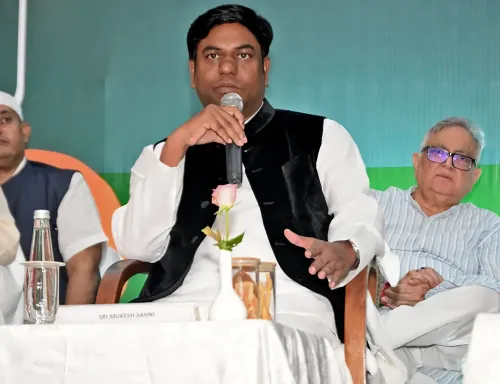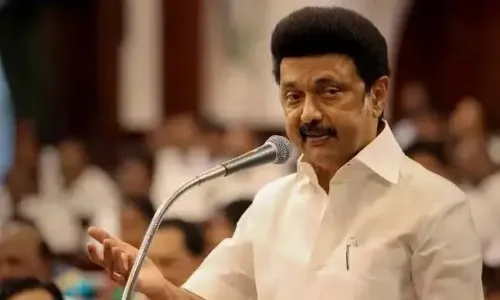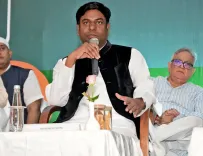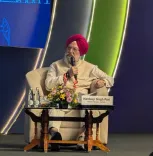FairPoint: Kejriwal Should Consider a Break for AAP's Future
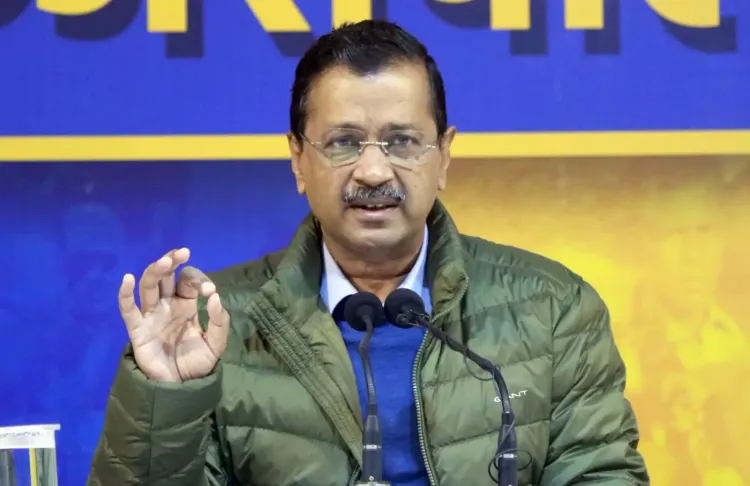
Synopsis
Key Takeaways
- AAP's decline is linked to Kejriwal's leadership.
- Corruption allegations are damaging the party's image.
- Kejriwal's controversial statements raise concerns.
- Public discontent is evident ahead of elections.
- Leadership change could be beneficial for AAP's future.
New Delhi, Feb 2 (NationPress) It is no longer a mystery how the Aam Aadmi Party (AAP), which had an impressive start in 2012, has faced such a decline. Is it the founder's unconventional ideas that have led the party into turmoil?
The AAP, which sparked renewed interest in political participation among the public and was seen as a challenger to traditional political practices, is now grappling with its own image as a party committed to integrity and transparency. Unfortunately, it appears that AAP has faltered on both fronts.
Corruption allegations involving top leadership have severely tarnished the AAP's reputation. From the liquor policy 'scam' to the Sheesh Mahal controversy, Mohalla Clinics, and classroom issues, the list of supposed misconduct continues to mount.
Furthermore, the AAP has faced increasing criticism for its failure to address basic civic necessities in the national capital, with accusations that no substantial development has occurred under its governance.
The final blow seems to have come from Arvind Kejriwal, the party's founder and former Chief Minister, whose statements about 'poison' in the Yamuna and the potential 'genocide' of Delhi residents were shocking.
Kejriwal claimed that the 'BJP government has mixed such a type of poison in the water that cannot be treated even by water treatment facilities'. He went on to compare the situation to acts of war, stating, 'Such politics is conducted by two enemy nations' and alluding to biological warfare.
He explicitly accused the BJP government in Haryana of 'poisoning' the Yamuna water supplied to Delhi and warned that had the Delhi Jal Board not intervened, it could have resulted in a 'mass genocide'.
This alarming statement from Kejriwal is perceived as a sign of his distress. Has he sensed growing discontent among Delhi voters following the 2024 Lok Sabha elections?
The Lok Sabha results were a significant setback for him, as he framed the election as a referendum on his arrest in the liquor case, which he labeled 'unlawful'. The electorate rejected his candidates, suggesting that his 'victimhood' narrative failed to resonate.
In response to this rejection, a desperate Kejriwal resorted to offering freebies, leading to a peculiar situation where a Chief Minister announces programs that the government describes as 'fraudulent'. This scenario is likely unprecedented in India's independent history.
Kejriwal's political journey has always been unconventional, from his 2014 street protests during the Republic Day celebrations to his overnight stay on the L-G's sofa in 2018, and now his rhetoric surrounding Yamuna pollution. He has even attempted to frame his arrest and subsequent release as a form of political 'martyrdom'.
While his distinctive approach has won him three terms as Chief Minister from 2013 to 2014, 2015 to 2020, and again for a third term, this time things seem challenging for him and his party as they face a downward trajectory.
Could the party's struggles be attributed to Kejriwal's style of leadership, which has led to the departure of many former allies, including Yogendra Yadav, Prashant Bhushan, Kumar Vishwas, Mayank Gandhi, Kapil Mishra, and others?
Mayank Gandhi stated in 2015 during the launch of his book 'AAP and Down' that 'Delhi Chief Minister Arvind Kejriwal has compromised the principles of the party.' He and several others have labeled Kejriwal as 'autocratic and not democratic' – traits that contradict the Mango Man image.
A close aide of Kejriwal, Kailash Gahlot, who served as a minister in Delhi, resigned from the party, expressing that 'AAP has compromised its values.'
The party's significant decline has disappointed those who believed AAP would be a genuine disruptor in Indian politics.
This upcoming Assembly election is poised to be less about speculation regarding whether AAP will retain its dominant position and more about the party's survival. Would projecting Atishi, one of the few AAP leaders with a clean record, as the Chief Ministerial candidate have been a wiser choice?
Given the allegations against him, perhaps it would be prudent for Kejriwal to take a temporary step back and prioritize the party. The unfortunate reality is that a founder often becomes possessive and shortsighted regarding their party's direction. This may indeed be the situation with Kejriwal.
It is time for him to step away from being the AAP leader and allow the party to return to its foundational values. The public desires a genuine alternative. AAP, which began with such promise, now seems to have lost its path.
(Deepika Bhan can be contacted at deepika.b@ians.in)

